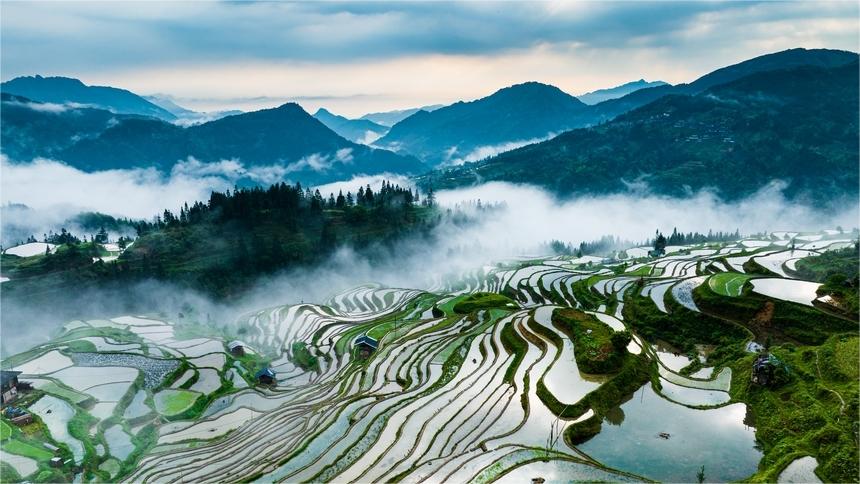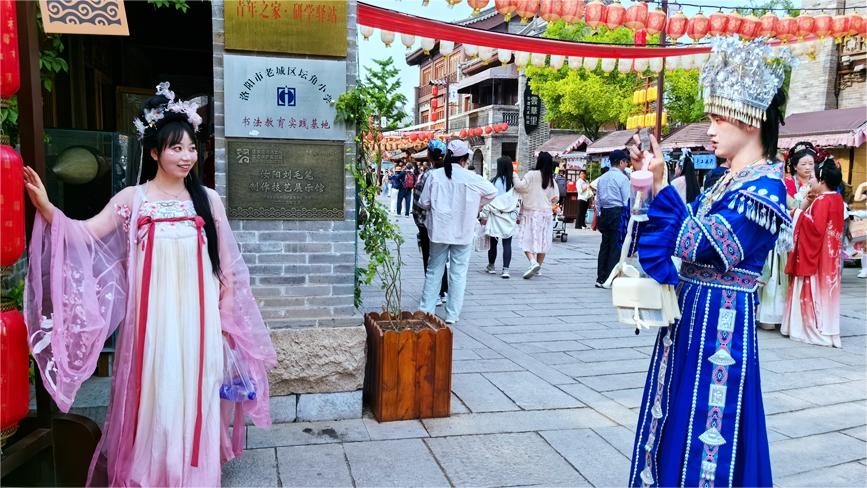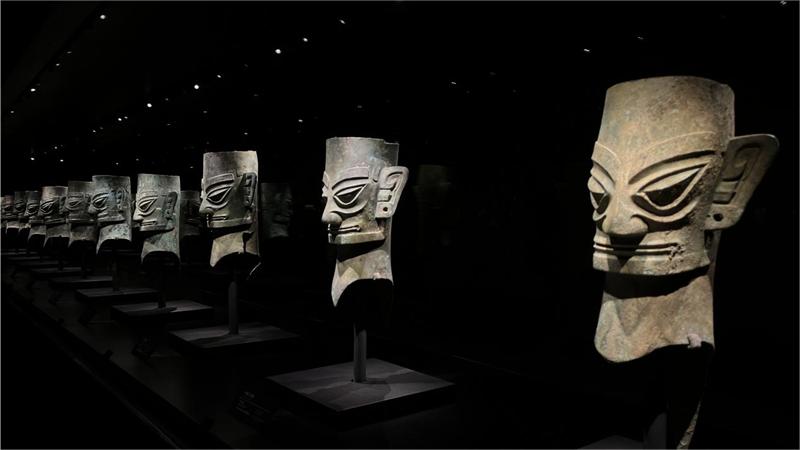Xi Focus: Glory and dreams rooted in spade
BEIJING, May 1 (Xinhua) -- At a volunteer tree-planting activity held last month in Beijing, Chinese President Xi Jinping lifted a spade onto his shoulder and skillfully shoveled the dirt to fill the planting pit alongside local residents.
His mastery of the tool was so effortless that many quickly assumed he was an experienced farmer. A similar photo promptly resurfaced on social media.
The photograph from late 1980s depicts Xi, then the Communist Party of China (CPC) chief of Ningde prefecture in east China's Fujian Province, striding across fields with a hoe on his shoulder, ready to join local laborers.
Xi's admiration for manual work and his close bond with working people can, in part, be attributed to his formative years in Liangjiahe, previously a rugged village on the country's arid Loess Plateau.
When Xi arrived in the village in 1969 he was barely 16. Despite their own hardships, local people generously took care of city youth, including Xi. "They fed me, washed my clothes, and fixed my trousers," Xi recalled.
During his seven-year stay in Liangjiahe, Xi worked alongside the villagers, tending crops, herding sheep and hauling coal. He joined the CPC there and later became the village Party chief, marking the humble beginning of his political career.
Xi recalled his earnest wish at that time was "to make it possible for the villagers to have meat and have it often."
Xi saw introducing the use of biogas as a catalyst for improving the villagers' life. He recalled that the first methane-generating pit posed a significant challenge. Upon completion, it was the province's first methane tank, solving coal and firewood shortage that had long troubled the local people.
Xi arrived in the village as a slightly bewildered teenager and left as a confident young man determined to "do practical work for the people."
For him, happiness comes from work. Glory belongs to all the working people, regardless of their trade.
"Society is created through labor. It does not have distinctions of high or low, noble or humble. Every profession is honorable," Xi once said.
Xi's respect for hard work formed his down-to-earth attitude and hands-on approach to governance. As the top leader, Xi still kept traces of working people. During domestic inspections, he checked the reconstruction of rural houses following floods, walked into fields to sample crops, and felt at ease engaging in discussions with factory workers.
Meeting the press after being elected general secretary of the CPC Central Committee in November 2012, Xi told domestic and foreign journalists: "The Chinese people's aspiration for a better life is the goal we must strive for."
Before long, China launched the largest anti-poverty endeavor in human history, aiming to eliminate absolute poverty in a country with a population of 1.4 billion. Xi assumed personal command. He oversaw every major policy move and went to all the country's 14 contiguous areas of extreme poverty. He pledged to achieve the goal "with the force and tenacity as a hammer driving a nail."
In February 2021, China announced that it has resolved the problem of absolute poverty. Close to 100 million people were lifted out of poverty in roughly eight years.
With absolute poverty eradicated in the country, Xi is guiding the nation to strive for its next milestones. China aims to basically realize socialist modernization by 2035 and build a great modern socialist country in all respects by the middle of this century.
Hard work remains crucial in achieving this objective, echoing a frequently quoted line by Xi: "Let's roll up our sleeves and get down to work!"
Photos
Related Stories
- Chinese president's upcoming visit to bring new hope to Serbia's development: Vucic
- Xi replies to letter from Serbian steelworkers
- Xi's visits to European countries promote healthy, stable China-EU relations
- Arabic version of book about Xi's elaborations on BRI promoted in UAE
- Xi's upcoming Europe visit to enhance bilateral ties, cooperation
- Xi, Portuguese president exchange congratulations on 45th anniversary of ties
Copyright © 2024 People's Daily Online. All Rights Reserved.









